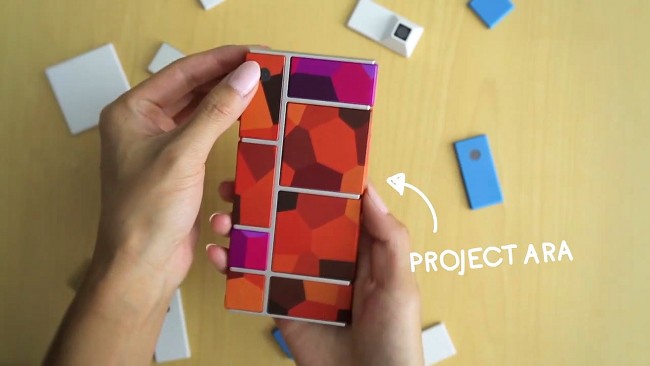When Google announced it was selling Motorola, its phone manufacturing business, to Chinese manufacturing giant Lenovo, we thought this was the end of Google’s brief attempt in the world of smartphone hardware.
Boy, we were wrong.
Turns out, Google still owns a small, yet very important part of Motorola: the Advanced Technology and Projects (ATAP) group, which will now work under the direction of the Android division.
Born out of the ATAP group is Project Ara, which aims to reinvent the smartphone. The project has been kept on a low boil for a bit, and last week at Mountain View, Google held its first-ever developer conference for Project Ara.
So what is it? Project Ara is a code name for Google’s modular smartphone, a game-changing device that allows you to swap out parts as they age or new features come out, or as your preferences change. By breaking down a smartphone into modules that can be assembled in limitless configurations, Google gives you the last phone you’d ever need to buy: you’ll be able to change everything from the camera to the display to the battery in order to always have the exact phone you want.
According to ATAP and Google, there are “5 billion” people who don’t have a smartphone. Project Ara aims to make a basic smartphone – completely customisable – accessible to those 5 billion who can’t afford an iPhone or Galaxy S5.
Ara phones are built using modules inserted into endoskeletal frames, the only component in the phone made by Google. With slots on the front for a display and even more slots in back for modules, your phone can not only have basic features like a camera and speakers, but may also carry more specialised modules in the near future. Think receipt printers, pico projectors, night vision sensors, and medical devices.
The modules – which come in amazing colours and prints – can be hot-swapped without turning the phone off, and the enclosures of the modules are 3D-printed. Yes, that means what you think it means: customers will be able to design their own enclosures and replace them as they wish.
Project Ara is scheduled to be released to the public in January 2015, with the least expensive model – basic Wi-Fi only – costing around USD$50. A more high-end model will follow later, running a price tag of USD$500. With barely a year left to make it real, Project Ara is of course faced with huge obstacles, but being the lovers of LEGO that we are, we hope it hits our shores soon.
Will you drop your iPhone/Android/Windows phone for an Ara? Let us know in the comments what features your smartphone will have!
P.S.: If you’d like to have a hand in the modular smartphone of tomorrow, Google is welcoming any and all developer input!
Also read: Days after its debut, Micro 3D printer has received over $2.5M in pre-orders!
















